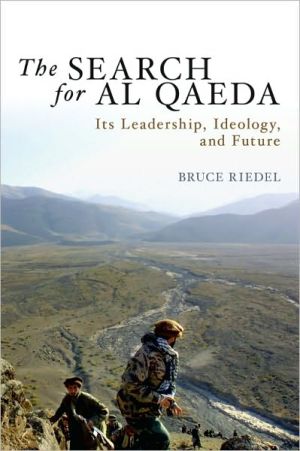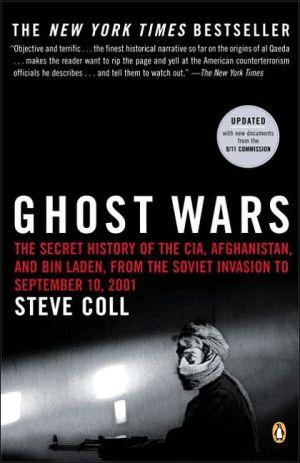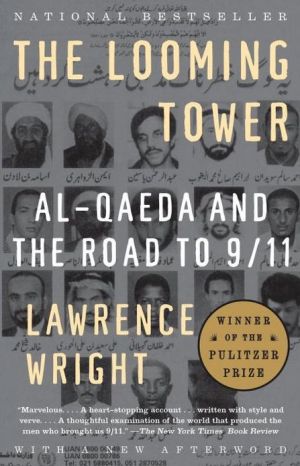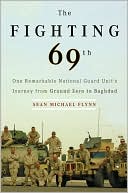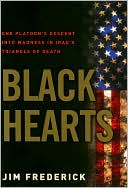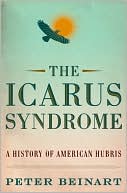The Search for al Qaeda: Its Leadership, Ideology, and Future
Al Qaeda is the most dangerous terrorist movement in history. Yet most people in the West know very little about it, or their view is clouded by misperceptions and half truths. This widely acclaimed book fills this gap with a comprehensive analysis of al Qaeda —the origins, leadership, ideology, and strategy of the terrorist network that brought down the Twin Towers and continues to threaten us today.\ Bruce Riedel draws on decades of insider experience —he was actually in the White House...
Search in google:
"Riedel manages to distill the essence of Al Qaeda in just 150 pages. Among other things, he notes that the Islamic fundamentalists do not hate America's values, only its policies.... A starting point for a much-needed debate." -- New York Times Book ReviewAl Qaeda is the most dangerous terrorist movement in history. Yet most people in the West know very little about it, or their view is clouded by misperceptions and half truths. This widely acclaimed book fills this gap with a comprehensive analysis of al Qaeda -- the origins, leadership, ideology, and strategy of the terrorist network that brought down the Twin Towers and continues to threaten us today.Bruce Riedel draws on decades of insider experience -- he was actually in the White House during the September 11 attacks -- in profiling the four most important figures in the al Qaeda movement: Usama bin Laden, ideologue and spokesman Ayman Zawahiri, former leader of al Qaeda in Iraq Abu Musaib al Zarqawi (killed in 2006), and Mullah Omar, its Taliban host. These profiles provide the base from which Riedel delivers a much clearer understanding of al Qaeda and its goals, as well as what must be done to counter and defeat this most dangerous menace.Praise for the hardcover edition"Bruce Riedel's The Search for al Qaeda is in parts alarming and in parts reassuring. Yes,we need to be worried Riedel argues.... Yet the situation is not hopeless: good policy would ameliorate the problem. In a literature tending towards either the blithe or the fatalistic, Riedel's book stands out.... An extremely valuable primer." -- Clive Crook, Financial Times "A timely book with solid analysis and important policy advice bya former insider about how to more effectively deal with al Qaeda, the broader challenge of extremism, and the core issues in the world's most volatile region. The next administration should read closely." -- Robin Wright, author of Dreams and Shadows: The Future of the Middle East"If you are tired of the same old talking heads blathering on TV about things they don't really know about, this is the book for you. Bruce Riedel is the real expert on al Qaeda." -- Leadership Development News Publishers Weekly Riedel, senior fellow at the Brookings Institute and senior adviser on the Middle East to three past presidents, reviews how al-Qaeda has flourished since the September 11 attacks with "franchises" mushrooming around the world. The author surveys al-Qaeda's origins, workings and key members and introduces fresh information about the organization's ideology and future plans. Riedel warns against conflating the war against al-Qaeda with the current war in Iraq ("the president chose to declare war not on al Qaeda, but on 'terrorism,' a concept that he and Vice President Dick Cheney arrived at by confusing 9/11 with Saddam Hussein's Iraq") and demonstrates how U.S. actions compound "the public's ignorance and vulnerability." He argues that concentrating forces in Iraq has diverted attention and presence from Afghanistan and Pakistan, the hotbeds of jihadist organization, and suggests redirecting the military back to the "badlands" of the Afghan-Pakistan border while offering economic aid to forestall the extremism that thrives in destitute areas. Riedel's argument in favor of greater U.S. involvement in the Arab-Israeli peace process is persuasive, and his prescriptions are well-evidenced, unfailingly sound and refreshingly sensible. (Oct.)Copyright © Reed Business Information, a division of Reed Elsevier Inc. All rights reserved.
1 The Manhattan Raid 12 The Thinker: Zawahiri 143 The Knight: Osama 374 The Host: Mullah Omar 615 The Stranger: Zarqawi 856 Al Qaeda's Plans 1167 How to Defeat al Qaeda 134Postscript 155Notes 159Bibliography 171Index 175
\ From the Publisher"Riedel manages to distill the essence of al Qaeda in just 150 pages." — New York Times Book Review\ "Riedel's argument in favor of greater U.S. involvement in the Arab-Israeli peace process is persuasive, and his prescriptions are well-evidenced, unfailingly sound, and refreshingly sensible." — Publishers Weekly\ " The Search for al Qaeda is in parts alarming and in parts reassuring.... In a literature tending towards either the blithe or the fatalistic, Riedel's book stands out." — Financial Times\ "[Riedel] understands al Qaeda for what it is: a set of highly effective leaders who have created a compelling narrative (based partly on American missteps in the Muslim world) and a remarkably resilient organizational structure that seduces a small group of young Muslims to destroy in a highly strategic manner." —Eboo Patel, Washington Post "On Faith"\ "Provides several sensible recommendations, such as making a renewed effort to settle the festering disputes over Palestine and Kashmir." — The Economist\ "The useful information, wide-ranging knowledge, and important insight within this short book are extremely impressive. A reader cannot help thinking that U.S. leaders were well-served by Riedel's analysis throughout his years in government (even in cases where it was not heeded)." — Parameters\ \ \ \ \ \ Publishers WeeklyRiedel, senior fellow at the Brookings Institute and senior adviser on the Middle East to three past presidents, reviews how al-Qaeda has flourished since the September 11 attacks with "franchises" mushrooming around the world. The author surveys al-Qaeda's origins, workings and key members and introduces fresh information about the organization's ideology and future plans. Riedel warns against conflating the war against al-Qaeda with the current war in Iraq ("the president chose to declare war not on al Qaeda, but on 'terrorism,' a concept that he and Vice President Dick Cheney arrived at by confusing 9/11 with Saddam Hussein's Iraq") and demonstrates how U.S. actions compound "the public's ignorance and vulnerability." He argues that concentrating forces in Iraq has diverted attention and presence from Afghanistan and Pakistan, the hotbeds of jihadist organization, and suggests redirecting the military back to the "badlands" of the Afghan-Pakistan border while offering economic aid to forestall the extremism that thrives in destitute areas. Riedel's argument in favor of greater U.S. involvement in the Arab-Israeli peace process is persuasive, and his prescriptions are well-evidenced, unfailingly sound and refreshingly sensible. (Oct.)\ Copyright © Reed Business Information, a division of Reed Elsevier Inc. All rights reserved.\ \
